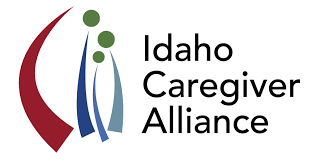Access to adequate emotional support plays an important role in overall caregiver well-being. We can find enormous benefit in connecting with others who are going through similar situations to ourselves.
Participating in a support group can help to alleviate feelings of isolation and give caregivers a sounding board for their most pressing concerns. Support groups can also be an excellent resource for connecting with agencies, services, and information that can be beneficial to both the caregiver and the care receiver. Finding local support groups can be as easy as conducting an internet search or checking your local newspaper. Healthcare providers, schools, counselors, and clergy may also be able to point you in the right direction.
Here are a few support groups to get you started. If you come across or start one of your own that you’d like listed, please contact the ICA.
Area Agency of Aging – Each Agency on Aging also maintains lists of support groups.
- Coeur d’Alene – Area I Agency on Aging of North Idaho – serves Benewah, Boundary, Bonner, Kootenai, Shoshone counties
- Lewiston – Area II Agency on Aging of North Central Idaho– serves Clearwater, Idaho, Latah, Lewis, Nez Perce counties
- Meridian and the Treasure Valley – Area 3 Senior Services Agency (A3SSA) – serves Ada, Adams, Boise, Canyon, Elmore, Gem, Owyhee, Payette, Valley, Washington counties
- Twin Falls – Area IV South Central Idaho Area Agency on Aging , College of Southern Idaho – serves Blaine, Camas, Cassia, Gooding, Jerome, Lincoln, Minidoka, Twin Falls counties
- Pocatello – Area V Agency on Aging, Southeast Idaho Council of Governments, Inc. – serves Bannock, Bear Lake, Bingham, Caribou, Franklin, Oneida, Power counties
- Idaho Falls – Area VI Agency on Aging of Eastern Idaho/Eastern Idaho Community Action Partnership – serves Bonneville, Butte, Clark, Custer, Fremont, Jefferson, Lemhi, Madison, Teton counties
Diagnosis Specific Support Groups:
- ALS – http://www.alsa.org/community/support-groups/
- Alzheimer’s Disease – http://www.alz.org/apps/we_can_help/support_groups.asp
- Greater Idaho Chapter: http://www.alz.org/idaho/
- Autism –http://www.idahoautism.com/support.html
- Cerebral Palsy – http://ucp.org/findaffiliate/
- Down Syndrome – http://idahodownsyndrome.org/
- Lewy Body Dementia – https://www.lbda.org/support
- Mental Health – http://namiboise.org/
- Muscular Dystrophy – https://www.mda.org/services/finding-support
- Multiple Sclerosis – http://www.nationalmssociety.org/Resources-Support/Find-Support
- Parkinson’s Disease – http://parkinsonsaction.org/get-involved/pan-your-state/idaho/
- Schizophrenia – https://www.nami.org/Local-NAMI?state=ID
- Brain Injury – http://biaid.org/services/support-groups/
- ADHD – http://www.chadd.org/
Starting Your Own Support Group
If no support group exists in your area, or if the available groups don’t meet your specific needs, you may need to start a support group.
- The first step is identifying the specific concerns your support group should address.
- Do you want to focus on a specific health condition? Or age population? Or perhaps the purpose of your support group is to create change in your community surrounding a particular issue such as accessibility?
- Where will the group meet? And how often?
- Who will facilitate the support group? Will each participant take turns moderating? Create an atmosphere that will be productive and inclusive; it’s essential to have someone who can help guide the conversations and pull others “out of the weeds” if the conversation takes an unusually heated turn.
Here are a few websites that can help get you started:

